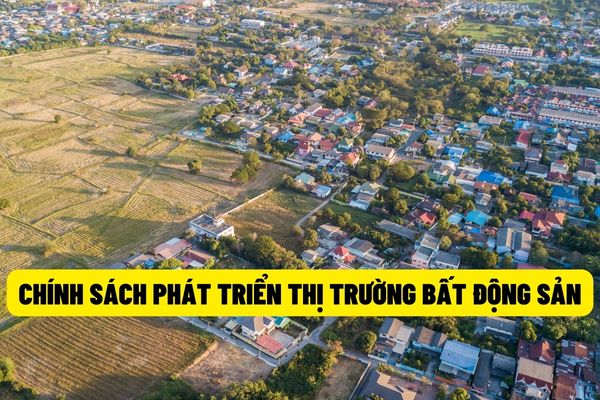Developing a real estate market system linked to land and enhancing non-cash payment implementation in real estate-related transactions
Developing a real estate market system linked to land and enhancing non-cash payment implementation in real estate-related transactions in Vietnam
Based on Subsection 2, Section IV, Resolution 18-NQ/TW, 2022, there are requirements to perfect the legal provisions related to the real estate market, including the land use rights market, with the following content:
- Strengthening the commercialization of land use rights. Building a real estate market information system linked with land information; creating policies encouraging the development of the land use rights market, especially the agricultural land lease market. Perfecting the legal basis and increasing the implementation of non-cash payments in real estate transactions. Establishing a mechanism to ensure the healthy, safe, and sustainable development of the real estate market; closely controlling and overcoming the state of land speculation.
Thus, it is necessary to promote the commercialization of land use rights, build a real estate market information system linked with land information, and increase the implementation of non-cash payments in real estate transactions.

Developing a real estate market system linked to land and enhancing non-cash payment implementation in real estate-related transactions in Vietnam (Image from the Internet)
What Acts are Currently Prohibited in Non-Cash Payment Transactions in Vietnam?
Based on Article 6 of Decree 101/2012/ND-CP (amended by Clause 2, Article 1 of Decree 80/2016/ND-CP), the following regulations apply:
“Article 6. Prohibited Acts
1. Forging, altering, erasing, replacing payment instruments, payment documents; storing, circulating, transferring, using counterfeit payment instruments.
2. Unauthorized access or attempts to access, destroy, or illegally alter software programs, electronic databases used in payment; exploiting computer network system errors for personal gain.
3. Providing untruthful information during the provision and use of payment services, intermediary payment services.
4. Disclosing, providing information related to the account holder's deposits at the payment service provider against legal regulations.
5. Opening or maintaining anonymous, false-name payment accounts.
6. Issuing, providing, and using illegal payment instruments.”
These prohibited acts in non-cash payment transactions are explicitly listed as per the regulations above.
The Housing and Real Estate Market Database Must Be Directly Connected to the Land Database in Vietnam
Based on Article 9 of Decree 117/2015/ND-CP the following regulations apply:
“Article 9. Building the Housing and Real Estate Market Database
1. The housing and real estate market database must be built in accordance with the national information system architecture, meeting database standards and technical, information technology standards, and economic-technical norms.
2. The housing and real estate market database must be directly connected to the land database, other relevant databases under Ministries, sectors, localities, between the Central and provincial levels, and between provincial-level housing management databases and district-level agencies.
3. The content of building the housing and real estate market database includes collecting, updating, processing information, storage, and preservation as stipulated in Articles 10, 11, 12 of this Decree.”
The building of the housing and real estate market database should be done according to the above regulations.
What are the regulations on additional collection of housing and real estate market information and data in Vietnam?
Based on Article 8 of Circular 27/2016/TT-BXD the following regulations apply:
“Article 8. Collecting Supplementary Information and Data on Housing and the Real Estate Market
1. Objectives, Principles:
a) The collection of additional information and data on housing and the real estate market of localities is conducted for information, data that are unavailable or unreported but necessary to ensure the prompt conduct of state management and meet socio-economic development requirements;
b) The information and data collected must be accurate, complete, and systematic;
c) The collection of supplementary information and data must ensure no duplication, overlap of tasks among related organizations and units; there should be close collaboration in information and data collection; optimizing existing information and data resources.
2. Basis for Implementation:
a) The content of the housing and real estate market database is stipulated in Articles 7, 8 of Decree 117/2015/ND-CP;
b) Current status of the housing and real estate market database;
c) Needs of state management and socio-economic development requirements;
d) Assigned tasks of state agencies with jurisdiction.
3. Annually, the Department of Construction proposes and reports to the provincial People's Committee on the collection of supplementary information and data on housing and the real estate market of the locality with the following contents:
a) Purpose, requirements for data collection on housing and the real estate market;
b) Types of information and data on housing and the real estate market needed to be supplemented in the housing and real estate market database;
c) Tasks of collecting supplementary information and data on housing and the real estate market;
d) Leading and coordinating agencies, units for task implementation;
đ) Implementation plan (including: budget, time, human resources, procedures).
4. The provincial People's Committee considers the actual conditions of the locality to approve the tasks and budget estimates for collecting supplementary information and data on housing and the real estate market.”
Thus, the collection and supplementary information and data on the real estate market are currently conducted according to the above regulations.
LawNet
